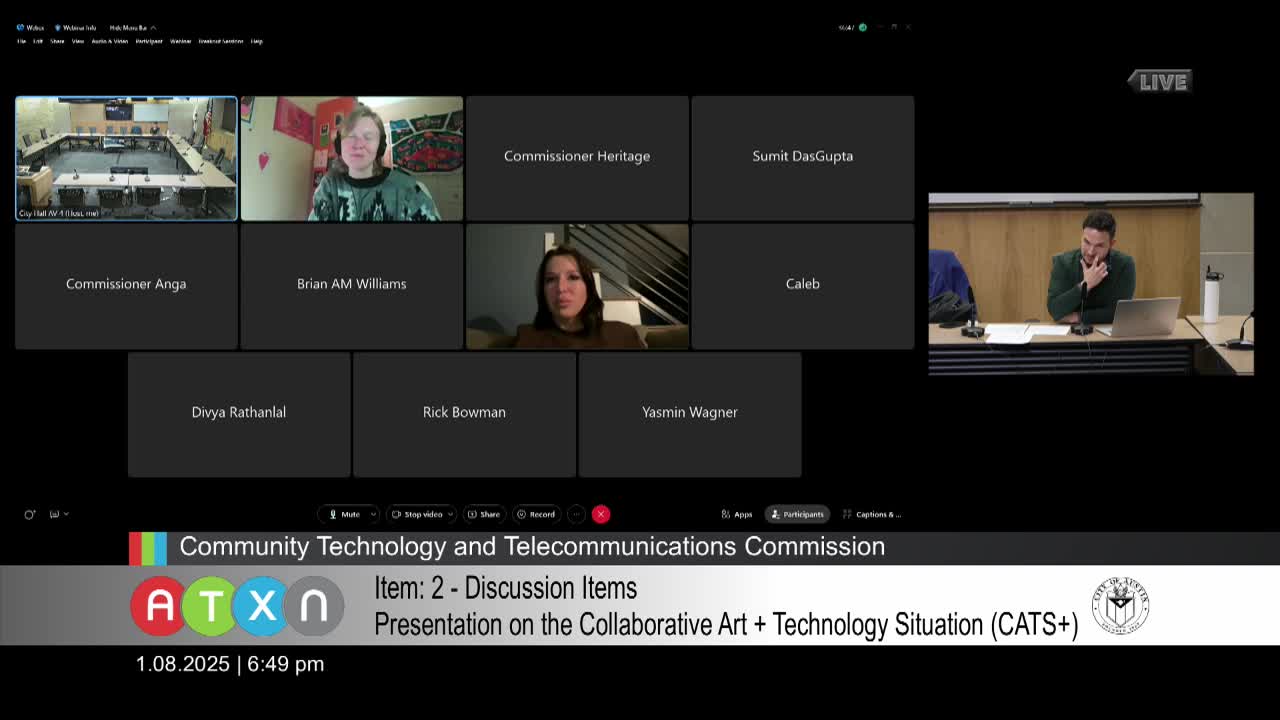City project team outlines Austin website redesign, plans for digital experience platform and phased personalization
Get AI-powered insights, summaries, and transcripts
Subscribe
Summary
City staff described a multi-month project to replace the current content management setup with a digital experience platform (DXP), citing content cleanup, migration protocols, usability testing and phased personalization while addressing privacy and uptime concerns.
City of Austin digital services staff told the Community Technology and Telecommunications Commission on Jan. 8 that the city plans to replace its existing content management approach with a digital experience platform (DXP) intended to modernize austintexas.gov and support future integrations.
Yasmine Wagner of the Communications and Public Information Office and Divya Ratanal of Digital and Creative Services described the DXP as part of a broader digital transformation that also includes language translation and a consolidated digital assistant. "This project is part of a larger digital transformation strategy to modernize our key systems," Divya said. The team said the project aims to keep digital solutions "simple, secure, and accessible" and to deliver a more consistent, service-oriented user experience.
Presenters said the existing site contains thousands of pages and hundreds of content authors across city departments. Staff described a recent cleanup that removed thousands of pages over the prior 12 months; they said the organization began migration planning and a content-tagging exercise across departments to prepare roughly 16,000 published pages for migration and set a target of reducing the site to under 5,000 published pages where legally feasible.
Caleb Sanchez, digital services supervisor, described a phased approach to personalization. The team will begin with implicit personalization — content adjustments based on return visits and navigation without a user account — and later add explicit personalization through optional accounts that can provide notifications (for example, service alerts or animal-adoption reminders). Sanchez noted privacy concerns and stressed that having an account will not be required.
Commissioners pressed staff on change management, usability, departmental buy-in and uptime during emergencies. Commissioner Das Gupta urged clear, consistent standards so users do not have to "know how our organization is structured to figure out where content is." Staff said they researched other cities’ implementations, met with peers and built a plan for user-centered research and vendor selection. They said usability testing will include residents with a range of digital-literacy levels and that departments are already tagging content for migration planning.
On uptime, staff said the city is contracting a scalable platform designed to handle traffic surges during emergencies and that service-level details (online availability percentage) would be confirmed with the vendor. Staff also said they will coordinate with emergency-management teams to keep emergency-notification sign-up prominent during migration.
The team asked the commission for continued engagement, including participation in usability testing and periodic milestone check-ins; commissioners requested follow-up briefings at major milestones and offered to help recruit test participants. Staff said they would propose a schedule of future briefings and testing opportunities.
No formal action was taken; staff said the DXP procurement and migration work will continue with ongoing stakeholder outreach.
